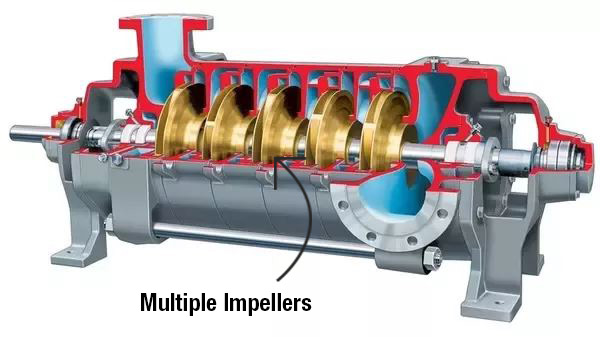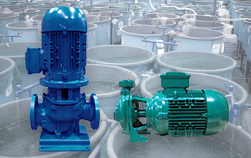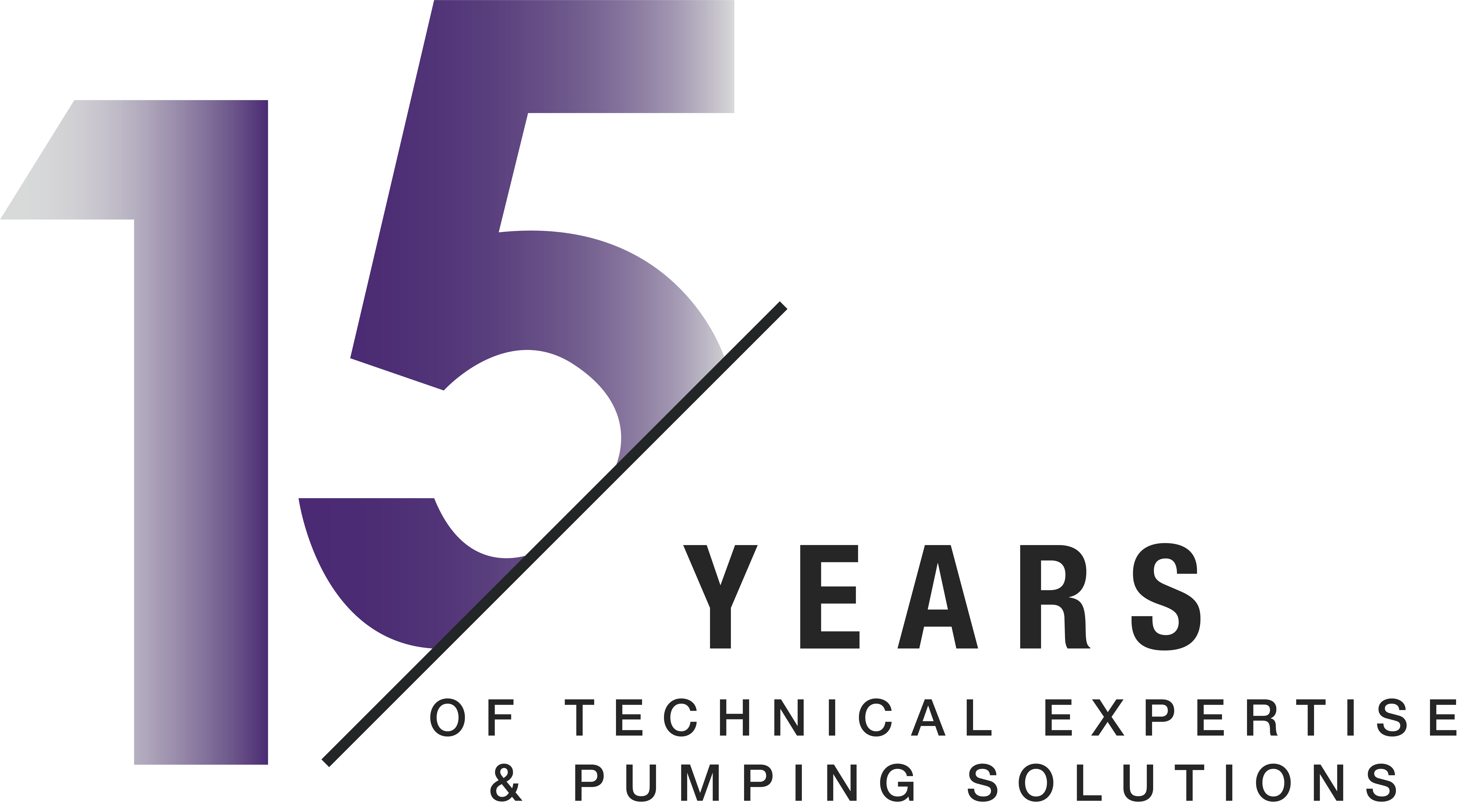Aquaculture and Fish Farm Pumps
With the increasing global demand for fish and the fact that our oceans cannot naturally provide for the growing demand, fish farming and aquaculture are becoming a popular way of filling in the seafood supply gap. And, just like any industry, fish farming requires high quality and reliable equipment to keep up with the market demand. Pumping solutions and systems are key elements to consider as they can greatly impact the production process and are crucial for applications such as seawater transfer across land, recirculating water within pools to prevent stagnation, transferring fish waste and oil, and even live fish handling.
As you would probably expect, pump reliability is crucial for aquaculture pumps as low-quality pumps can stop the process entirely, resulting in collateral losses, downtime, and major risk to your business. Another important factor to consider is that not every pump type will "fit" your process, so when sourcing or specifying a pump for aquaculture there are important factors such as pressure, head, flow rate, the presence of solids, and material compatibility that you need to determine.
This means that when it comes to fish farming pumps, there isn't a one size fits all, so this article will talk through the different types of aquaculture pumps and their applications and how this impacts the pump that is chosen.
Typical aquaculture pump applications:
- Regular water circulation to prevent stagnation
- Cooling/Heating water to provide the optimal water temperature level
- Freshwater and seawater intake
- Handing water with fish waste and offal content
- Handling live fish
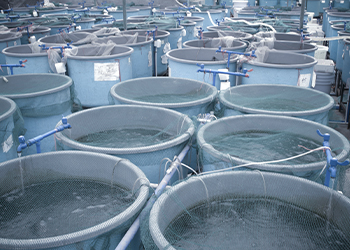
Which pump types are usually used for fish farming?
Several types of pumps are suitable for aquaculture applications, such as submersible pumps and side channel pumps, but the most common are centrifugal pumps. Due to their high efficiency and simple design, smooth flow, ease of operation and maintenance, centrifugal pumps are preferred for use in a range of aquaculture applications. However, there are different types of centrifugal pump which are suited for specific applications… so here is a quick summary of each aquaculture pump type and the applications that it is best suited for:
Vertical and Horizontal Centrifugal Pumps
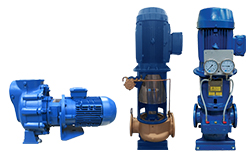 Horizontal and vertical centrifugal pumps are typically used for recirculation purposes. Their working principles are similar, and the main difference between these aquaculture pumps is the shaft's position. This means that when selecting a pump based on being horizontal or vertical, it all comes down to convenience and application requirements. For example, the upright design of a vertical inline pump is ideal for applications where space is an issue as its horizontal alternative can take up to 2-3 times more space.
However, horizontal centrifugal pumps are more commonly used because they are easy to maintain and install. With models available with self-priming capabilities, some horizontal and vertical centrifugal pumps have very good flow rate and pressure capabilities and are suitable for seawater or freshwater intakes in on-land fish farming applications. A key factor to consider when selecting an aquaculture pump is to ensure that its material is fully compatible with the fluid being pumped and the species in the fish farm, as some pump materials can be detrimental to crustaceans and hatchlings.
Horizontal and vertical centrifugal pumps are typically used for recirculation purposes. Their working principles are similar, and the main difference between these aquaculture pumps is the shaft's position. This means that when selecting a pump based on being horizontal or vertical, it all comes down to convenience and application requirements. For example, the upright design of a vertical inline pump is ideal for applications where space is an issue as its horizontal alternative can take up to 2-3 times more space.
However, horizontal centrifugal pumps are more commonly used because they are easy to maintain and install. With models available with self-priming capabilities, some horizontal and vertical centrifugal pumps have very good flow rate and pressure capabilities and are suitable for seawater or freshwater intakes in on-land fish farming applications. A key factor to consider when selecting an aquaculture pump is to ensure that its material is fully compatible with the fluid being pumped and the species in the fish farm, as some pump materials can be detrimental to crustaceans and hatchlings.
Vortex and grinder impeller centrifugal pumps
For applications that require a solid handling pump for transferring fish waste and offal content, centrifugal pumps with vortex or grinder impellers are an ideal pumping solution. However, when specifying a fish farm pump, you need to remember that each of these impellers offers different performance characteristics that make it more or less suitable for a particular application. For example, centrifugal pumps with vortex impellers are ideal for pumping dirty fluids containing debris, as the pump creates a vacuum so that large solids can pass through without interfering with the pump's internals, thus preventing the risk of clogging and pump damage. On the other hand, the centrifugal pumps with grinder impellers have sharp-edged, scissor-like vanes designed to grind any solids before entering the pump, making them ideal for applications where larger organic solids or fish waste need to be transferred.
Vertical Immersion
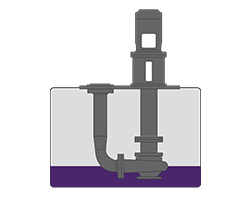
Vertical immersion pumps, also referred to as vertical shaft pumps or column pumps, are a popular solution for aquaculture applications where submersible pumps fail. When a reliable pumping solution is needed for emptying tanks, reservoirs, sumps and wells, vertical immersion pumps are a good alternative to submersible pumps. This is because the pump head is located within the fluid maintaining a flooded suction, while the pump motor stays outside the fluid being less prone to seal and motor failures and providing ease of maintenance.
Multistage pumps
Multistage centrifugal pumps are typically selected for applications where high-pressure capabilities are required, such as transferring fresh water or seawater over a very large distance. Also, multistage pumps rely on multiple impellers… each impeller can be smaller in diameter operating with tighter clearances, which means that each impeller operates close to its best hydraulic efficiency, allowing higher performance with a smaller motor size and less energy consumption. As they have two or more impellers, as opposed to the one impeller centrifugal pumps, multistage pumps are popular for applications such as water supply boosting, water recirculation, and heating/cooling conditioning. However, this type of centrifugal pump can't handle any solid content as it will damage the pump impellers.
